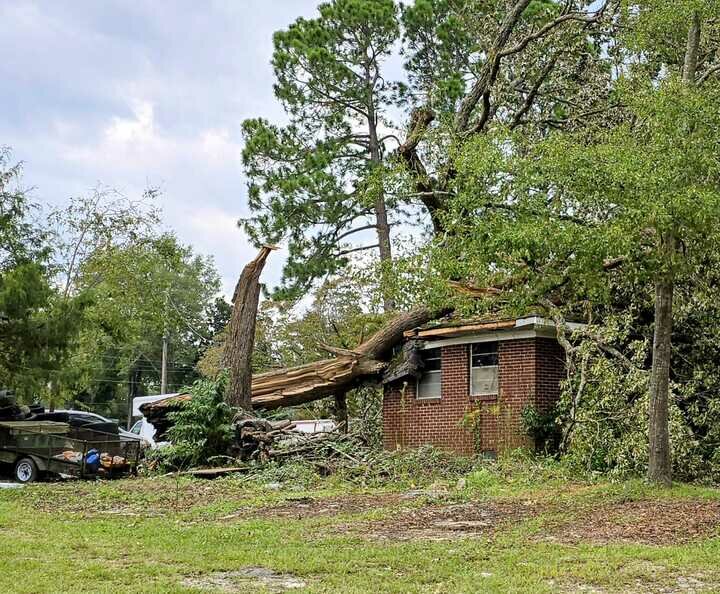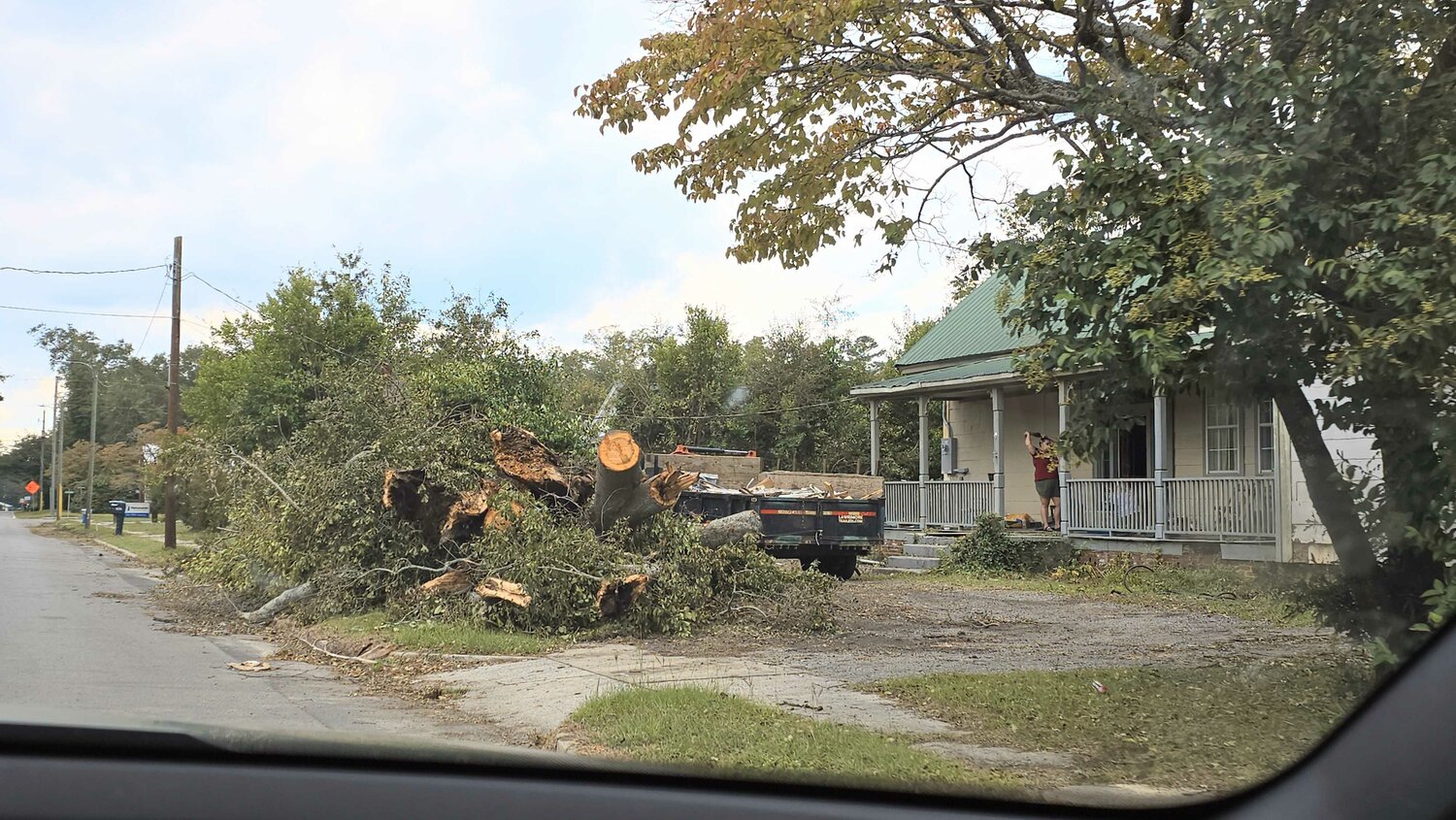Restoration efforts continue after Helene with 29 S.C. deaths reported
State organizations are encouraging blood donations, municipalities are offering clean-up options, power companies are working to restore outages and schools are giving updates for the rest of the week.
In the aftermath of Hurricane Helene, East Coast residents are still experiencing varying degrees of damage, whether it be flooding, power outages or dangerous debris.
The S.C. Department of Public Safety, on Sept. 30, confirmed 29 South Carolina deaths due to Hurricane Helene.
- Aiken County: five deaths
- Anderson County: four deaths
- Chesterfield County: one death
- Greenville County: six deaths
- Greenwood County: one death
- Newberry County: two deaths
- Saluda County: three deaths
- Spartanburg County: six deaths
- York County: one death
Across the Southeast, Helene, which came ashore Thursday night as a Category 4 with winds of 140 mph, has devastated communities even after speeds fell, flooding creeks and rivers as far north as Tennessee as it quickly moved through multiple states, leaving more than 3 million customers without power and killing at least 52, according to the Associated Press.
As of Sunday morning, Dominion Energy reported that 904 of its customers in the Town of Lexington are still without power. Crew members are currently working on restoring residents’ power.
“We understand that our customers are tired, frustrated and want to know when their lights will come back on. While we can provide estimates for some areas today, other areas will take more time," Keller Kissam, president of Dominion Energy South Carolina said in a press release. “We have boots on the ground all across the state. Crews continue to assess damage even as we rebuild our system from the ground up in communities where the impacts were catastrophic. We will not stop until every customer in South Carolina that we have the privilege to serve can go home to lights shining and air conditioners blowing.”
As of noon on Sept. 30, South Carolina has nearly 740,000 power outages.
And Lexington County, according to poweroutage.us, is among the S.C. counties still struggling to get back to normal with almost 29,000 outages reported.
More specifically, as of Monday morning, Aiken Electric Cooperative reported 2,026 outages, Dominion Energy reported 16,161 outages, Mid-Carolina Electric Cooperative reported 10,450 outages, Newberry Electric Cooperative reported 241 outages and Tri-County Electric Cooperative reported zero outages.
S.C. Gov. Henry McMaster additionally requested an Expedited Major Presidental Disaster Declaration, according to a press release.
If approved, the FEMA Individual Assistance Program will help residents affected by Helene in Aiken, Anderson, Bamberg, Cherokee, Chesterfield, Greenville, Greenwood, Lexington, Oconee, Newberry, Pickens, Saluda and Spartanburg counties. This program can provide financial assistance to residents.
According to South Carolina’s Emergency Management Division, numerous teams have been responding and helping the state recover.
According to the press release:
- Thousands of line workers are working around the clock to make power repairs.
- The South Carolina Department of Transportation has more than 2,300 employees working, clearing debris from the roadways and repairing traffic signals.
- The South Carolina Department of Public Health has been in contact with 168 healthcare facilities to check on their power/electricity status and assist with any needs.
- The South Carolina National Guard has 400 service members on state active duty assisting with damage assessment, vehicle recovery, debris clearing and more.
- The South Carolina Department of Public Safety Highway Patrol Troopers and State Transport Public Officers have responded to 3,854 incidents.
The Blood Connection is asking community members to donate blood as their blood product inventory is at a critical level. Donation centers are open from 7 a.m. to 7 p.m. You can find the donation centers at thebloodconnection.org/donate.
Lexington's donation center is at 5141 Sunset Blvd.
If you would like to volunteer to assist those impacted by Hurricane Helene, you can register at VolunteerSC.org
Lexington County officials are now offering a storm-debris drop-off site located at 510 Ballpark Road in the Recreation Complex’s parking lot. Location hours will be from 7 a.m. to 5 p.m. Monday through Friday.
If you need help with damage, call Crisis Cleanup at 844-965-1386 and volunteers can help with mucking out, cleaning up trees, tarping roofs and clearing debris.
All Lexington County school districts announced closures on Monday, Sept. 30.
District One has canceled school for students and staff for Tuesday, Oct. 1. On Wednesday, Oct. 2 they will operate on a two-hour delay.
District Two schools and offices will be closed on Tuesday, Oct. 1 due to ongoing impacts of Helene. On Wednesday, Oct. 2, schools will operate on two-hour delay.
District Five will observe an e-learning day on Tuesday, Oct. 1.
According to a release, "all schools and offices in School District Five of Lexington & Richland Counties, including our virtual FIVE program, will observe an e-learning day on Tuesday, October 1, 2024. Schools and offices will reopen on Wednesday, October 2, 2024, with a two-hour delay bell schedule."
There will be other district updates throughout the day.
Other items that may interest you










Comments
No comments on this item Please log in to comment by clicking here